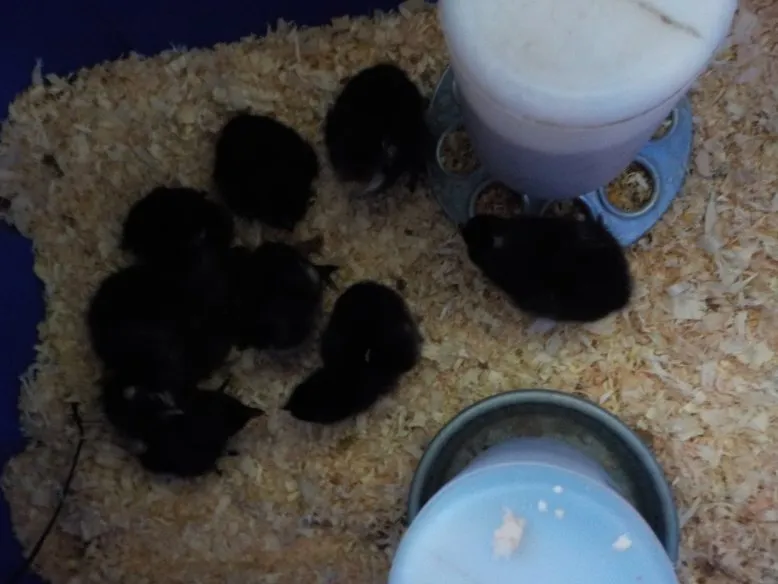
It’s happening! Our Ayam Cemani genes are showing up in force with the latest clutch of chicks here at Leafhopper Farm. These cute little babes are all downing out dark like their daddies and the markings are most striking. It’s exciting to see the shift in our flock appear almost overnight in one brooding cycle. I’ve posted a picture of the previous brood to compare.
Chicks Enjoy UV Brooder Heat
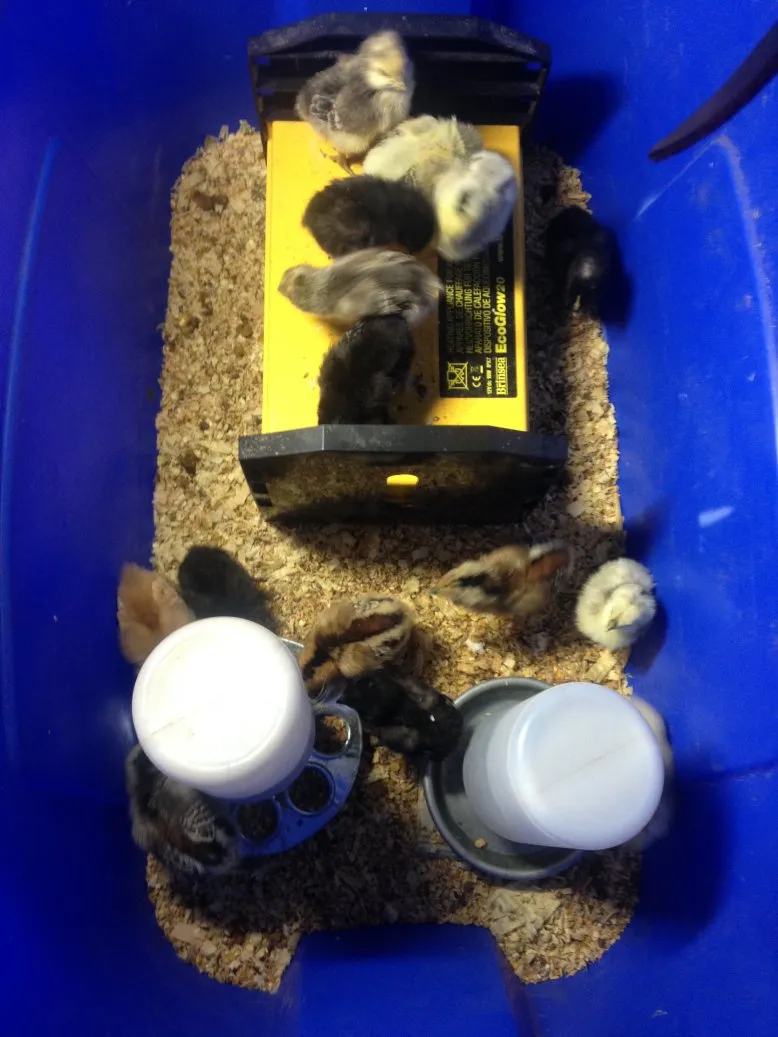
These Spring chicks were a mix of all colors, but the black was starting to show up. Now the entire brood is black. It’s a sign of the dominant Cemani genes coming from the paternal line of this flock. We’re only breeding Cemani cockerels as an experiment. Leafhopper will continue to diversify the female side of our flock, including heritage breeds like our Delawares.
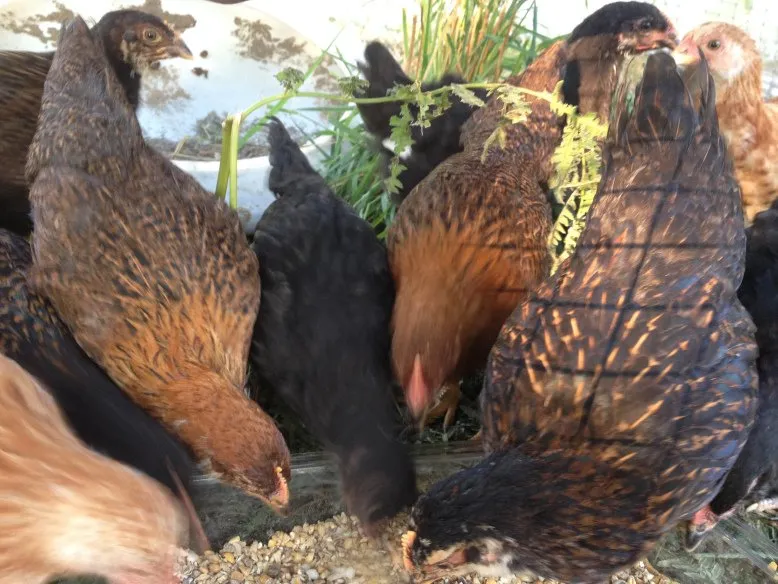
Our young flock of dark layers, including the Barnevelder and Marans, will encourage even more genetic diversity at Leafhopper Farm. We’re working on healthy birds and funky colors; both in egg shades and plumage. Yes, there is some aesthetic fun in this flock! Some of our hybrids are looking very smart too.
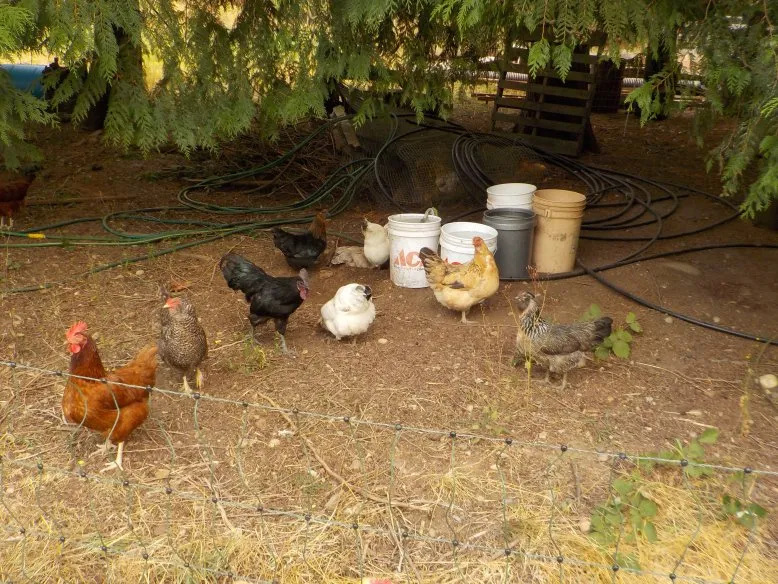
In the above photo, you can see our current breeding Roster “Black Jack” and a few of his hens in the laying flock. On the far left is a Rhode Island Red, to the right, a Bard-rock hybrid, the white butt of a Delaware cross, a nice looking black Cemani hybrid hen with a copper neck in back, a Buff Orpington mix, and a silver laced Americana hybrid. It’s a rich mix, and they are all laying healthy eggs.
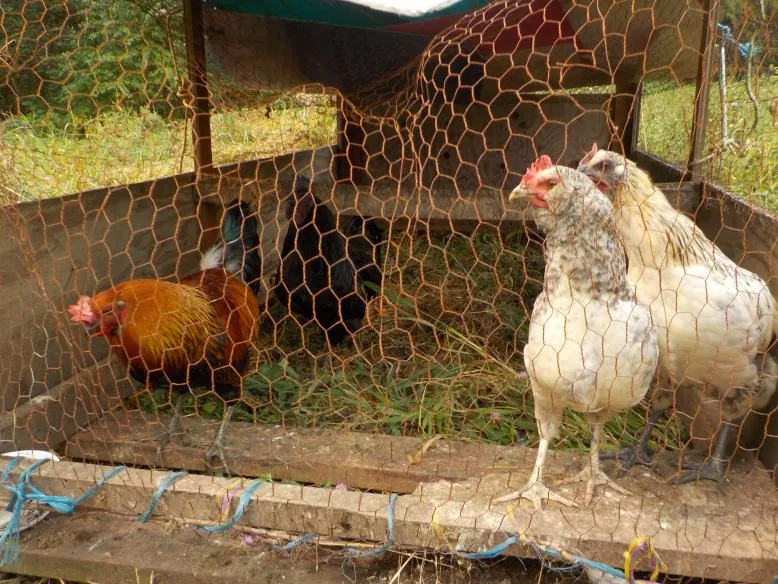
Meanwhile in the bachelor coop, “Big Comb”, our other Ayam Cemani rooster, just finished a three week stint with the hens before switching back out with “Black Jack”. He is feasting on pasture with three other young roos including a nice red male I’ve taken to calling Chanticleer. These gentlemen get along fine without any hens around to kick up hormones, but the two white guys on the right are slated for the pot later this fall.
Our home flock is settling in, and we’re planning to build new housing to accommodate our numbers as we continue to produce more birds. There is a lot of pasture space available for chicken scratching and a portable coop big enough to house them is currently in the works. We’ll need the extended space when this black flock of chicks is fully grown. At that point, our flock numbers will crest 40 for the first time. At 50, we’ll hold numbers for a few years to see how our closed breeding has panned out. If the chickens are laying well and healthy in body, mind, and spirit, we’ll keep breeding on site and try not to introduce new stock from off site.
Liz Crain
@leafhopperfarm

WEBSITE: leafhopperfarm.com
TWITTER: twitter.com/LeafhopperFarm
MINDS: minds.com/leafhopperfarm
YOUTUBE: 